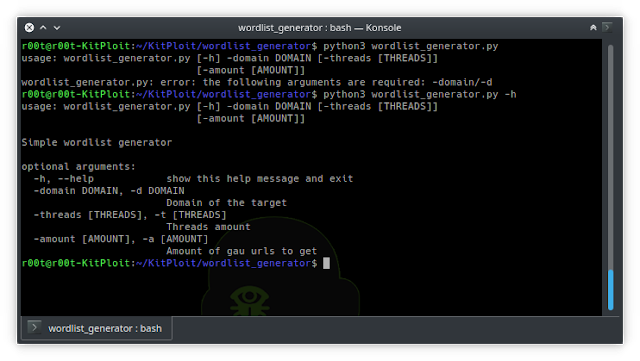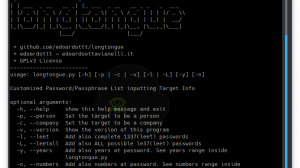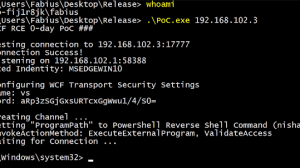[sc name=”ad_1″]
wordlist_generator generates wordlists with unique words with techniques mentioned in tomnomnom’s report “Who, What, Where, When”. It takes URLs from gau and splits them to get words in URLs. Then it requests each URL to fetch all words. Finally, wordlist_generator removes from wordlist everything from “denylists” directory files to keep only unique words, which you can use for domain, directory, parameter, vhosts, etc bruteforcing.
Usage:
Examples:
$ ./wordlist_generator.py -d hackerone.com -a 5000 -t 50
$ ./wordlist_generator.py -d bugcrowd.com -a 1000
$ ./wordlist_generator.py -d intigriti.com > intigriti_wordlist.txtTo display the help for the tool use the -h flag:
./wordlist_generator.py -h| Flag | Description | Example |
|---|---|---|
-domain |
target domain | ./wordlist_generator.py -d openbugbounty.org |
-threads |
threads amount | ./wordlist_generator.py -d yahoo.com -t 6 |
-amount |
amount of URLs to fetch from gau | /wordlist_generator.py -d twitter.com -a 10000 |
Installation:
$ git clone https://github.com/SomeKirill/wordlist_generator/
$ cd wordlist_generator
$ pip install requestsdenylists wordlists used:
- https://github.com/danielmiessler/SecLists/blob/master/Discovery/Web-Content/raft-large-directories-lowercase.txt
- https://github.com/oprogramador/most-common-words-by-language/blob/master/src/resources/dutch.txt
- https://github.com/first20hours/google-10000-english/blob/master/google-10000-english.txt
- https://tools.ietf.org/html/rfc1866
[sc name=”ad-in-article”]





















Add Comment